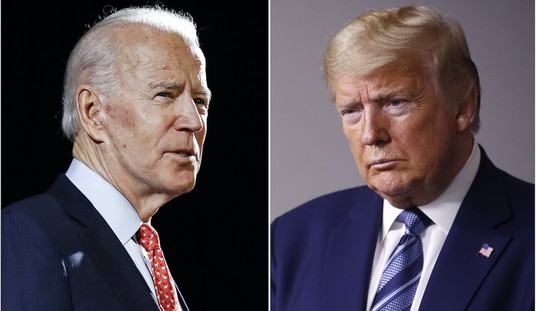Of course it doesn’t, even though that was one of the core promises the administration and Democrats made in pushing ObamaCare on the nation. More than four years after debate began on the massive restructuring of the nation’s health-care market, the New York Times finally notices that the law doesn’t actually address why the costs in rural areas remained so high — the lack of choice and competition:
As technical failures bedevil the rollout of President Obama’s health care law, evidence is emerging that one of the program’s loftiest goals — to encourage competition among insurers in an effort to keep costs low — is falling short for many rural Americans.
While competition is intense in many populous regions, rural areas and small towns have far fewer carriers offering plans in the law’s online exchanges. Those places, many of them poor, are being asked to choose from some of the highest-priced plans in the 34 states where the federal government is running the health insurance marketplaces, a review by The New York Times has found.
Of the roughly 2,500 counties served by the federal exchanges, more than half, or 58 percent, have plans offered by just one or two insurance carriers, according to an analysis by The Times of county-level data provided by the Department of Health and Human Services. In about 530 counties, only a single insurer is participating.
The analysis suggests that the ambitions of the Affordable Care Act to increase competition have unfolded unevenly, at least in the early going, and have not addressed many of the factors that contribute to high prices. Insurance companies are reluctant to enter challenging new markets, experts say, because medical costs are high, dominant insurers are difficult to unseat, and powerful hospital systems resist efforts to lower rates.
Why should this surprise anyone, let alone the New York Times now? There is nothing about ObamaCare that actually increases competition, nor is it the point of the project. ObamaCare is about using the brute force of government intervention to redistribute the assets of risk pools in a politically palatable way. That’s why we have new mandates on covering pre-existing conditions, sterilization, and forcing insurers to cover “children” through the age of 26. All of that guarantees higher costs; those are only obfuscated by government subsidies, although not entirely.
The solution to rural costs for health insurance was one that Republicans proposed repeatedly during the debate as an alternative to government intervention — allowing insurers to sell policies across state lines. Eliminating that prohibition would have at least provided the opportunity for competition and better pricing for rural Americans. That kind of market-based reform applied more broadly would have helped draw down the cost curve in a real way in other areas of the health-care industry as well. Democrats refused to consider it, and this is what we have now — the worst of both worlds.
Don’t expect this to get any better, either, although the NYT quotes the White House urging patience:
The Obama administration, while not disputing the findings, responded to the analysis in a statement that the marketplaces ”allow insurers to compete for customers based on price and quality.” It added that the tax-credit subsidies that will lower monthly payments for many consumers had also ”brought more companies to the market, resulting in increased options for consumers and lower-than-expected premiums.”
It didn’t bring more companies to markets in rural areas, obviously, and it won’t in the future. Insurance companies will have fewer resources in the future to set up shop in places like Wyoming, Montana, the Dakotas, and so on because of the cost pressure on their existing risk pools. In fact, they’re more likely to leave those areas than expand into them, especially if ObamaCare can’t succeed in forcing younger and healthier Americans to pay massive premiums for comprehensive policies they don’t need, with deductibles that practically ensure they’ll never benefit from them.
In short, this isn’t reform. It’s a political stunt, and data like this shows how little reform meant to those who created it.








Join the conversation as a VIP Member